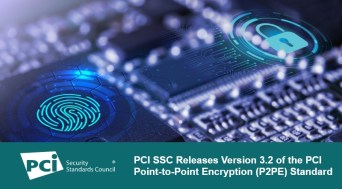Newsroom

The PCI SSC Newsroom is the place for news and announcements from the PCI Security Standards Council.
Keep up with PCI SSC.
Press Inquiries
Have a press inquiry for the PCI SSC Communications team? Please contact us and we will get back to you soon!
PCI Perspectives Blog
Just Announced
Breaking News!
PCI SSC News, Press and More
Press Release
02 April 2025
Press Release
21 November 2024

Listen to the PCI SSC Podcast
Available on most major podcast apps including Anchor, Spotify, Pocket Casts, and Google Podcasts.
-
23 June 2025
Coffee with the Council Podcast: Meet This Year’s North America Community Meeting Keynote Speaker, Reed Timmer
Listen Here -
20 May 2025
Coffee with the Council Podcast: Introducing the New India-South Asia Regional Engagement Board
Listen Here -
29 April 2025
Coffee with the Council Podcast: Passwords Versus Passkeys: A Discussion with the FIDO Alliance
Listen Here
Threat Center
Criminals use malicious software to infiltrate a computer system and steal payment data. Ransomware is the fastest growing malware threat.
Phishing emails are a common delivery vehicle for malware. These emails look legitimate, such as an invoice or electronic fax, but they include malicious links and/or attachments that can infect your computer and system.
Criminals can gain access to your systems that store, process, or transmit payment data through weak remote access controls. Remote access may be used by your payment terminal vendors, for example, to provide support to your terminal or to provide a software update.
More than 80% of data breaches involve stolen/or weak passwords. *Verizon 2017 DBIR
Criminals look for outdated software to exploit flaws in unpatched systems.
Criminals attach small hardware "skimming devices" to card readers which can sweep customer payment data when they use payment cards at your store. Criminals use the stolen data to create counterfeit cards and make illegal purchases.
Meet the PCI SSC Communications Team






